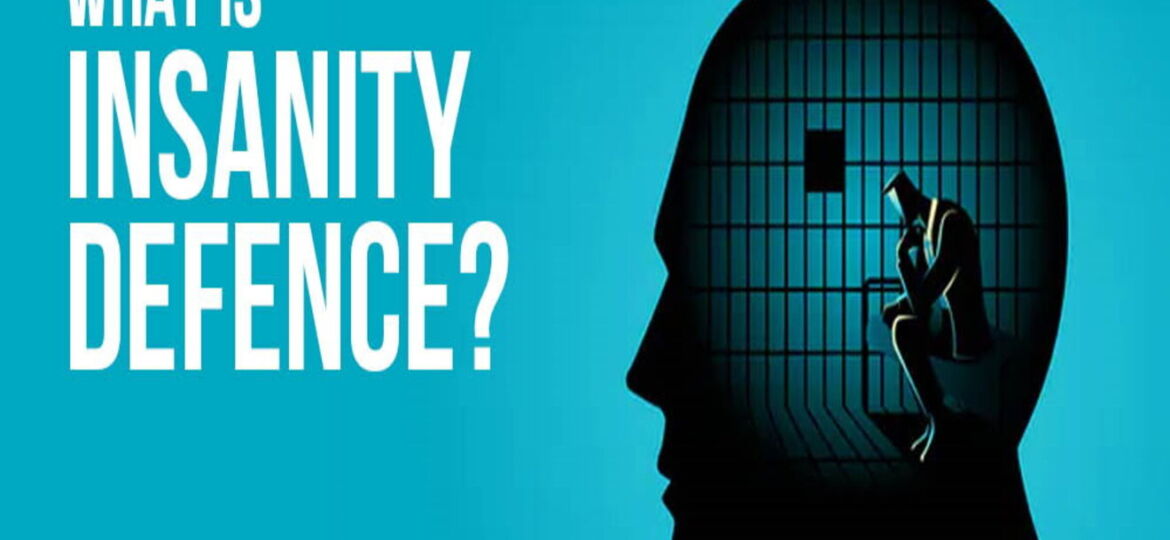
INTRODUCTION
The Indian Penal Code, 1860[1] (IPC) enshrines criminal jurisprudence for the republic of India and its citizens. With punitive measures, IPC also reserves defenses that are being pleaded by the accused when tried for an alleged offense in the court of law. The defenses in the IPC are vested in Chapter IV namely ‘General Exceptions’ which ranges from Section 76 – 106 of IPC.
The defense of insanity is defined in S. 84 of IPC. Though the word ‘Insanity’ has not been mentioned anywhere in the said section however the legal vocabulary applied is ‘unsoundness of mind’. The illness of mind acts as a solid defense in the area of criminal trials however the same has been a widely debated topic between medical professions and the legal fraternity. There is significant differentiation between medical unsoundness and legal unsoundness of mind and the courts always consider only the unsoundness of mind which is bestowed in S. 84 of IPC and not with the “unsoundness of mind” as understood in the medical science[2]
The defense under S. 84 is established on the hypothesis that, if a wrongful act has been committed by a person who at the time of disposing of such illegal acts was inadequate or incapable of understanding the consequences of said wrongful acts, such person shall not be held liable for his/her acts because the essential element of ‘mens rea’ is absent and therefore the accused person shall not attract the punitive measures vested in IPC.
Section 84 can be better understood with the maxim- ‘Actus non facit reum nisi mens sit res’ which means ‘act does not constitute guilt unless done with guilty intention’
HISTORY
Insanity as a defense has prevailed for a long time in Indian legal procedure however the origins of the principles of insanity were born from M’Naughten’s case[3] which laid down the insanity as defense jurisprudence.
The judges gave a judgment which in other words is summarized as, a defendant shall not be guilty for his acts by reason of insanity if, at the time of the commission of the alleged criminal offense, the defendant was so unhinged that he/she could not decide upon the nature of the committed acts and that what they were doing was right or wrong. The rules pronounced in other words were: the accused shall be presumed to be insane until the contrary beyond doubt is proved, the burden of proof in such cases lies on the ends of accused and that his/her employed acts were committed under the defect of mind and that the accused did not know the nature and consequences of such acts, if it is proved that the accused was aware of the act at the time of the commission of the act, such accused shall be punished by the court of law, if the accused has partial illusions, it must be assumed that the accused has real delusions.
The test that law insists upon is the “right and wrong test” of Mac Naughten rules as recognized in Section 84[4] and the abovementioned rule is being employed by courts to date to decide the liability or acquittal of an accused.
LEGAL ASPECT
Any criminal act requires two essential elements i.e. ‘Actus Reus’ (criminal act) and ‘Mens Rea’ (guilty mind). In the absence of any one of the two vitals, the said act shall not be titled a crime. The unsoundness of mind depicts the absence of ‘Mens Rea’ and therefore the accused shall not be punished by the court of law. The said defense is defined in S. 84 of IPC.
The legal procedure of trial is reserved in Chapter XXV, S. 328 – 339 of Code of Criminal Procedure, 1973[5]
In the case of Namu Ram Bora v. the State of Assam[6], a triple murder convict attracted a lenient view of the court instead of capital punishment, life imprisonment was awarded to the convict as a result of some mental imbalance.
The Supreme Court in the case of Jai Lal v. Delhi Administration[7] held that when an individual due to insanity is not able to understand the nature of the act or acts which he is employing are either wrong or unlawful in nature, such individual shall not be held guilty for any criminal acts because such person does not possess intentions to commit such acts.
ESSENTIALS OF INSANITY
To prove that the acts did are not an offense under Section 84, IPC, it is to be established that, when the crime was committed, the person who employed such acts was incapable of understanding the consequences of an act. If a person does not possess requisite mens rea, then such person cannot be held liable for acts that he did under the illusion of insanity[8] and this is an exception under S. 105 of the Indian Evidence Act, 1872.[9]
Before S. 84 is applied to any circumstance, certain ingredients are to be fulfilled:
a) That the person was of unsound mind,
b) That the person was of unsound mind when he/she committed the offense,
c) That, as a consequence of such unsoundness of mind where accused was unable to determine the unlawful nature of the act, committed an unlawful act.[10]
CONCLUSION
Insanity as a defense prospers to protect and preserve human rights in respect to those who are challenged mentally. It has been understood that persons of unsound minds are not criminals because they are not capable of committing criminal acts against an individual or the society at large and consequently such challenged persons shall not be punished instead they shall be assisted with the medical fraternity.
The duty to superintend such mentally challenged persons shall be imposed on people belonging to the medical field because such persons may act as a source of harm and injury to the society and therefore such persons shall be kept in observation until it is concluded that such person is fit to reside in a society without harming anyone anymore.
Whenever an individual pleads insanity as a defense, the legal fraternity decides the gravity of the offense after taking the intention into consideration. If the person is given the defense of insanity such person shall not be left on their own and should be sent to compulsory medical supervision for a certain duration of time.
The defense of insanity plays a vital role in safeguarding the interests of individuals who otherwise are incapable of committing an offence because they do not know if the employed acts fall within the ambit of crime and thus the said disease must be acknowledged accordingly.
Author(s) Name: Varchaswa Dubey (JECRC University, Jaipur)
[1] Act no 45 of 1860
[2] State v. Chhotelal, AIR 1959 MP 203 : 1959 Cr LJ 718
[3] 8 ER 718, 1843 UKHL J16
[4] Hazara Singh v. State, AIR 1958 Punj. 104 (DB)
[5] Act no. 2 of 1974
[6] AIR 1975 SC 762 : 1975 Cr LJ 646
[7] AIR 1969 SC 15
[8] Jai Lal v. Delhi Administration, AIR 1969 SC 15: 1969 CriLJ 259
[9] Act no 1 of 1872
[10] Sarka v. State, AIR 1969 Ori 102 : 1969 Cr LJ 623 (DB)















